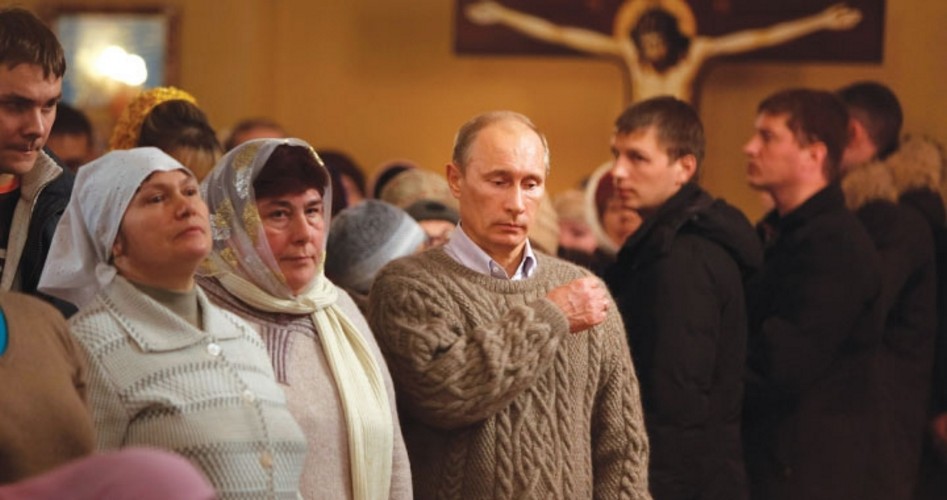The Russian Church as Putin’s Weapon of Influence
From the Middle Ages to the Bolshevik Revolution, the Russian Orthodox Church served the country’s monarchs, playing an active role in state governance. Today the situation is little different, although Russia is a secular state, according to its constitution. The church in Russia got resurrected after it was all but destroyed by the communist revolution of 1917 and the subsequent years of totalitarian rule. Now religion has become relevant once again, and after the fall of the communist regimes all across Europe in 1989, it has been rehabilitated. Religious faith has begun to matter, and the religious institutions have been given an important status in the post-totalitarian societies.
However, the newly reborn religious freedoms in Russia came with the legacy of the KGB. After 1917, the whole church was brutally repressed and purged. It was portrayed as evil — a symbol of capitalism, imperialism, and the “opium of the people,” according to the Marxist ideology. The church as an institution was nearly annihilated by the Bolsheviks. They, however, had too many battles to fight at the time, and could not focus their full attention on the church and its followers. Also they realized they could not expect people to become devout atheists overnight. Generations were needed to eliminate faith and religious beliefs, which were deeply rooted in the Russian psyche prior to the revolution.
Instead, the Bolsheviks offered the Russian Orthodox Church a choice to collaborate with the regime, which in return would ensure its survival, despite the fact that the Bolsheviks did not recognize it. “You had to reach certain compromises, especially, if you wanted to move up in the Russian church hierarchy,” says Yuri Felshtinsky, a U.S.-based Russian author who specializes in intelligence issues. The communists used the church as a KGB tool for spying and reporting on people. “After seeing three-quarters of its monks and priests purged after the Revolution, the church needed little prompting from the KGB to serve it. For the church, there was indeed no alternative. They had to be friendly with the KGB,” says former KGB officer Oleg Gordievsky.
JBS Member?
Sign in with your ShopJBS.org account.
 Subscribe Now
Subscribe Now
- 24 Issues Per Year
- Digital Edition Access
- Digital Insider Report
- Exclusive Subscriber Content
- Audio provided for all articles
- Unlimited access to past issues
- Cancel anytime.
- Renews automatically
 Subscribe Now
Subscribe Now
- 24 Issues Per Year
- Print edition delivery (USA)
*Available Outside USA - Digital Edition Access
- Digital Insider Report
- Exclusive Subscriber Content
- Audio provided for all articles
- Unlimited access to past issues
- Cancel anytime.
- Renews automatically



